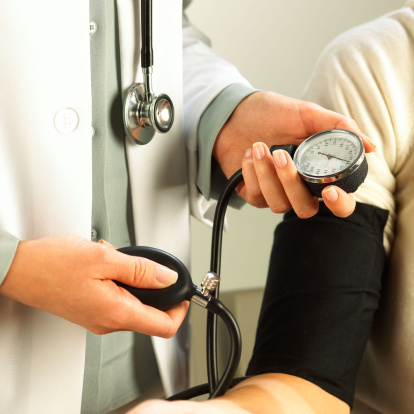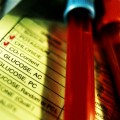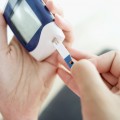Diabetes Basics
Q What is diabetes?
A Diabetes is a group of diseases marked by high levels of glucose in the blood. This can result from not having enough insulin, insulin not being used properly , or both. Left untreated, diabetes can lead to serious complications (health problems like blindness and kidney disease), and even early death. But, there is good news: people with diabetes can take steps to control the disease and lower their risk for complications.
Q How many Americans have diabetes?
A Twenty six million Americans have diabetes. Of these, around 7 million do not even know they have the disease! The number of people diagnosed with diabetes has risen from 1.5 million in 1958 to 18.8 million in 2010, a major increase in a short amount of time.
Q What is prediabetes?
A It is estimated that 79 million American adults aged 20 and older have prediabetes, a condition where blood glucose levels are higher than normal but not high enough to be diabetes. Studies have shown that by losing weight and increasing physical activity, people can prevent or delay prediabetes from progressing to the full disease. Exercise helps your body to use glucose better, which prevents it from getting too high in your blood.
Q What are the different types of diabetes, and how common are they?
A Type 1 (previously called “insulin-dependent” or “juvenile-onset”) diabetes accounts for only about 5 to 10% of all cases of diabetes in adults. In type 1 diabetes, the pancreas stops making insulin, the hormone that helps your body use glucose from food for energy.
Type 2 (previously called “non-insulin-dependent” or “adult-onset”) diabetes accounts for the majority (90 to 95%) of all diagnosed cases in adults. More and more children and teenagers are getting type 2 diabetes, as well. Type 2 diabetes is diagnosed when the body does not make or use insulin well. People with type 2 diabetes often need to take pills or insulin shots to control their blood glucose levels.
Gestational diabetes occurs in a small number of pregnancies. Women who have had gestational diabetes have a higher chance of developing type 2 diabetes10 to 20 years after their pregnancy.
Q Is diabetes more common in men or women?
A Diabetes is more common in men, but not by very much. About 13 million men over 20 have diabetes, compared to about 12.6 million women over 20.
Q Do young people get diabetes?
A About 215,000 Americans under 20 have diabetes. Most of these kids and teenagers have type 1 diabetes.
Q Are certain races or ethnicities more likely to get diabetes?
A Diabetes is common among most racial and ethnic groups in America, but some are at a higher risk than others. These include Hispanics, African Americans, American Indians, Alaska Natives and Pacific Islanders. If you are a member of one of these groups, see your healthcare provider regularly to get checked for diabetes and find out how you can lower your risk.
Q How many deaths are linked to diabetes?
A Diabetes is the 7th leading cause of death in the United States, and heart disease is the leading cause of death among people with diabetes. Unfortunately, the overall risk of death among people with diabetes is about double that of people without who do not have the disease. But, working closely with your diabetes care team and making healthy lifestyle changes can greatly reduce your risk.
Q How serious is a diagnosis of diabetes?
A You may have heard people say they have “a touch of diabetes” or “your sugar is a little high.” These words make it sound as if diabetes is not a serious disease. This is not true at all. Diabetes is serious, but by making healthy lifestyle changes, and taking medicine, if needed, you can manage your diabetes and lead a healthy life. All people with diabetes should eat the right foods, stay at a healthy weight, and be physically active every day.
Q What is a complication?
A A complication is a condition or injury that happens as a result of a pre-existing chronic illness, such as diabetes. Common diabetes complications include:
- Heart disease
- Stroke
- Eye problems, including blurred vision and blindness
- Nerve damage
- Amputation, usually of a foot or leg
- Kidney problems
- Gum disease
- Tooth loss

Know your diabetes ABCs
When you are diagnosed with diabetes, you may hear or read the words “A1C,” “blood pressure,” and “cholesterol.” Understanding what these words mean can help you make good decisions about your health. Here’s what you need to know about diabetes ABCs:
A is for A1C: A1C is a blood test that measures your average blood glucose level over the previous 2-3 months. It is different from the blood glucose checks you do each day, because it can give you a bigger picture of how well your blood glucose is being controlled. If your A1C is too high, you may be more likely to have problems with your heart and blood vessels, kidneys, feet or eyes. The A1C goal for most people with diabetes is less than 7 percent. Ask your healthcare provider what your personal goal should be.
B for Blood pressure: Blood pressure is the force of your blood against the wall of your blood vessels. If your blood pressure gets too high, it makes your heart work too hard. This can cause heart attack, stroke, and kidney disease.
You should aim for a blood pressure of less than140/80 , unless your healthcare provider has set a different goal for you.
C for Cholesterol: There are two kinds of cholesterol in your blood: LDL and HDL. LDL, or “bad” cholesterol, can build up and clog your blood vessels. Over time, this can cause a heart attack or stroke. HDL, or “good” cholesterol, helps remove the “bad” cholesterol from your blood vessels and lowers your heart disease risk. Ask your healthcare provider what your cholesterol numbers should be.
How to reach your ABC goals
Your ABC goals will depend on how long you have had diabetes, if you have any other health problems, and how well-controlled your diabetes is. No matter where your health is right now, there are a few steps you can take to improve your ABC numbers.
Step 1: Learn how to cope with diabetes
It is common to feel overwhelmed, sad, or angry when you are living with diabetes. You may know the steps you should take to stay healthy, but have trouble sticking with your plan over time. But stress, whether it’s due to diabetes management, relationship troubles, or poor sleep, can raise your blood glucose.
Luckily, there are many ways to manage stress. Try deep breathing, gardening, taking a walk, meditating, working on a hobby, or listening to your favorite music. Remember that there is always someone who can help if you feel down. A mental health counselor, support group, religious leader, friend, online community or family member who will listen to your concerns may help you feel better.
Step 2: Eat well
Make a diabetes meal plan with help from your healthcare team. It’s best to choose foods that are low in unhealthy fats, sugar and salt. Try to eat foods that are high in fiber, such as whole grains and fresh fruits and vegetables.
Drink water instead of juice and regular soda, which can raise your blood glucose level.
When eating a meal, a helpful guide is to fill half of your plate with fruits and vegetables, one quarter with a lean protein (such as beans, fish or chicken), and one quarter with a whole grain like brown rice or whole-wheat pasta. You can find out more about the plate method on the MyPlate website.
Step 3: Be active
Set a goal to be more active most days of the week. You can start slowly by taking 10-minute walks, 3 times a day. You don’t have to do the full 30 minutes all at once. Twice a week, work to increase your muscle strength. Use stretch bands or hand weights, do yoga, heavy gardening (digging and planting with tools), or try push-ups. When you are stronger, you might be able to add in more activities, like swimming, hiking, dancing or cycling. Always ask your healthcare provider before trying a new activity to make sure it’s safe for you.
Step 4: Know what to do every day
It is much easier to manage your diabetes if you have a plan. Feel free to use this list as a reminder of the things you have to do each day to limit stress and complications.
- Take your diabetes (and any other) medicines exactly as your healthcare provider told you to, even when you feel fine.
- Check your feet every day for cuts, blisters, red spots, and swelling. Call your healthcare team right away about any sores that do not go away.
- Brush your teeth and floss every day to keep your mouth, teeth, and gums healthy.
- If you smoke, work on quitting. Your healthcare team will have resources to help you stop smoking; you just need to ask!
- Keep track of your blood glucose. You may want to check it one or more times a day. Keep a record of your blood glucose numbers. Bring your blood glucose numbers to your medical appointments.
- Check your blood pressure if your healthcare provider has said you should, and keep a record of the numbers. Bring your numbers to your medical appointments.
Step 5: Get routine care

See your healthcare team at least twice a year to find and treat any problems early. If you have a few different problems, ask a member of your team how often you should get them checked.
At each visit, be sure you have a:
- Blood pressure check
- Foot check
- Weight check
- Review of your self-care plan (above)
Two times each year, have an:
- A1C test (may be checked more often if it is over 7)
Once each year, be sure you have a:
- Cholesterol test
- Triglyceride test
- Complete foot exam
- Dental exam (teeth and gums)
- Dilated eye exam
- Flu shot
- Urine and blood test to check for kidney problems
At least once in your lifetime, get a:
- Pneumonia shot
- Hepatitis B shot
Medicare and diabetes
If you have Medicare, check to see how your plan covers diabetes care. Medicare covers some of the costs for:
- Diabetes education
- Diabetes supplies (such as glucose meters, test strips and syringes)
- Diabetes medicine
- Visits to a dietitian (to help you decide what foods to eat and manage your weight)
- Special shoes, if you need them













